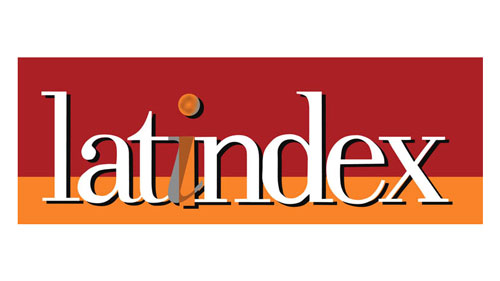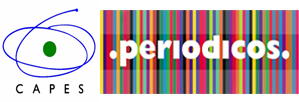Academic writing groups in higher education: Brazil and Argentina on focus
DOI:
https://doi.org/10.26512/rhla.v20i2.39006Keywords:
Writing Groups, Academic Writer, Attitudes towards the writing processAbstract
This article aims at describing the theoretical foundation, the methodological procedures and the results obtained in two pedagogical experiences of teaching academic writing in two different university contexts: the Writing Group 1st Edition, developed in Brazil with five participants, and the Club de Graduandes with nine participants, formed in Argentina, as well as analyzing the reports of its participants that show attitudes (GARRET; COOUPLAND; WILLIAMS, 2003) towards the academic writing process. The theoretical framework is based on the concept of writing as a social and political process and practice (IVANIC, 2004) capable of driving personal and professional changes and, as methodological procedures, the use of a qualitative approach (CHIZZOTTI, 1998; SUASSUNA, 2008) and content analysis (BARDIN, 2006). The results indicate that the participation in these projects provided insertion in the scientific community, as writers, reviewers and referees in the first case and entry into a professional career in the second.
Downloads
References
BARTON, D.; HAMILTON, M. Local literacies: reading and writing in one community. London/New York: Routledge, 1998.
BARDIN, L. Análise de conteúdo. Tradução de L. de A. Rego e A. Pinheiro. Lisboa: Edições 70, 2006.
CARGILL, M.; O’CONNOR, P. Writing scientific research articles. 2. ed. West Sussex, UK: Wiley-Blackwell, 2014.
COLOMBO, L.; CARLINO, P. Grupos para el desarrollo de la escritura científico-académica: una revisión de trabajos anglosajones. Lenguaje, v. 48, Cali, Colombia, p. 23-34, 2015.
CHIZZOTTI, A. Pesquisa em ciências humanas e sociais. São Paulo: Cortez, 1998.
CARRET, P.; COULPAND. N.; WILLIAMS, A. Investigating language attitudes. Wales: University of Wales Press, 2003.
CURRY, M.J.; LILLIS, T.M. Strategies and tactics in academic knowledge production by multilingual scholars. Education Policy Analysis Archives, v. 22, n. 32, p. 1-28, 2014. Disponível em: https://doi.org/10.14507/epaa.v22n32.2014. Acesso em: 27 maio 2021.
SILVA, A. O. A sua revista tem Qualis? Mediações, v. 14, n.1, p. 117-124, jan./jun. 2009.
IVANIC, R. The discourse of writing and learning to write. Language and Education, v. 18, n. 3, p. 220-245, 2004.
MENG, Y.; ZHAO, C. Academic supervisor leadership and its influencing mechanism on postgraduate creativity in China. Thinking Skills and Creativity, v. 29, p. 32-44, Sept. 2018.
RESENDE, V. M.; RAMALHO, V. Análise de discurso crítica. São Paulo: Contexto, 2006.
SCHIAVO, M. R.; MOREIRA, E. N. Glossário social. Rio de Janeiro: Comunicarte, 2005.
SUASSUNA, L. Pesquisa qualitativa em Educação e Linguagem: história e validação do paradigma indiciário. Perspectiva, Florianópolis, v. 26, n. 1, p. 341-377, jan./jun. 2008. Disponível em: https://doi.org/10.5007/2175-795x.2008v26n1p341. Acesso em: 06 nov. 2021.
SEIDE, M. S. Clube de Escrita. In: Anais do XX Seminário de Extensão da Unioeste, Cascavel, PR, 2021, p. 23-28.
SILVA, K. A.; GUEDES, S. M. R.; DIAS, T. R. N. Letramento, bilinguismo e empoderamento feminino surdo: uma análise crítica. The Especialist, v. 40, n. 3, p.1-19, 2019.
WERTSCH, J. V. Mind as action. New York, NY: Oxford University Press,1988.
TECHMAN, G. et al. Group peer review reflections on a model for teaching and learning qualitative inquiry. International Review of Qualitative Research, v. 11, n. 4, p. 452-466, 2018.
Downloads
Published
How to Cite
Issue
Section
License
Copyright (c) 2021 Revista Horizontes de Linguistica Aplicada

This work is licensed under a Creative Commons Attribution-NonCommercial-NoDerivatives 4.0 International License.

A Revista Horizontes de Linguística Aplicada de http://seer.bce.unb.br/index.php/horizontesla/index é licenciado sob uma Licença Creative Commons Atribuição-Uso não-comercial-Vedada a criação de obras derivadas 3.0 Unported.
- Autores mantém os direitos autorais e concedem à revista o direito de primeira publicação, sendo o trabalho simultaneamente licenciado sob a Creative Commons Attribution License o que permite o compartilhamento do trabalho com reconhecimento da autoria do trabalho e publicação inicial nesta revista.
- Autores têm autorização para assumir contratos adicionais separadamente, para distribuição não-exclusiva da versão do trabalho publicada nesta revista (ex.: publicar em repositório institucional ou como capítulo de livro), com reconhecimento de autoria e publicação inicial nesta revista.




